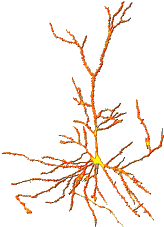Keywords:
Statement:
Dr. Savoy received his academic training in applied mathematics at MIT (B.S. 1971; M.S. 1975) and experimental psychology at Harvard University (Ph.D. 1980). This period included 10 years of work at Polaroid Corporation’s Vision Research Laboratory, after which he joined the newly formed Rowland Institute for Science, under the direction of the late Edwin Land, in 1981. In 1991 he first learned of the revolutionary work being conducted at the Massachusetts General Hospital’s Nuclear Magnetic Resonance (NMR) Center, using magnetic resonance imaging (MRI) to detect changes in neural activity (via the associated hemodynamic changes in blood flow, blood volume, and blood oxygenation). In 1993 Dr. Savoy joined that group and became the Director of Functional MRI Education in 1994. He has conducted fMRI training workshops regularly at the MGH NMR Center 3 or 4 times per year since 1994, attracting more than 1000 researchers from around the world. In addition, he has run similar programs at conferences and at other institutions in the United States, Europe, Asia and Australia. Dr. Savoy’s fMRI-based research interests are wide-ranging, including temporal resolution of fMRI, stereopsis, language, American Sign Language, decision making, and multivariate analysis. Dr. Savoy’s primary employment is as the President of HyperVision, Incorporated, a small consulting company located in Lexington, Massachusetts. In this capacity he continues to teach fMRI workshops at both MGH and other institutions around the world, as well as serving as a research consultant for various investigators.
Dr. Savoy has always taken particular interest in explaining the most complex of technical and scientific ideas to a wide range of audiences. Functional Brain Imaging is certainly based on complicated technologies, but there are a number of unifying and relatively simple underlying ideas. The challenge for the upcoming workshop is to give a general audience an appreciation of the technology while maintaining a clear focus on the more immediately relevant question: “Which of the hundreds and even thousands of technical reports coming from the world of functional brain imaging is relevant to the day-to-day work of educators, and how can these reports be evaluated?”
|



